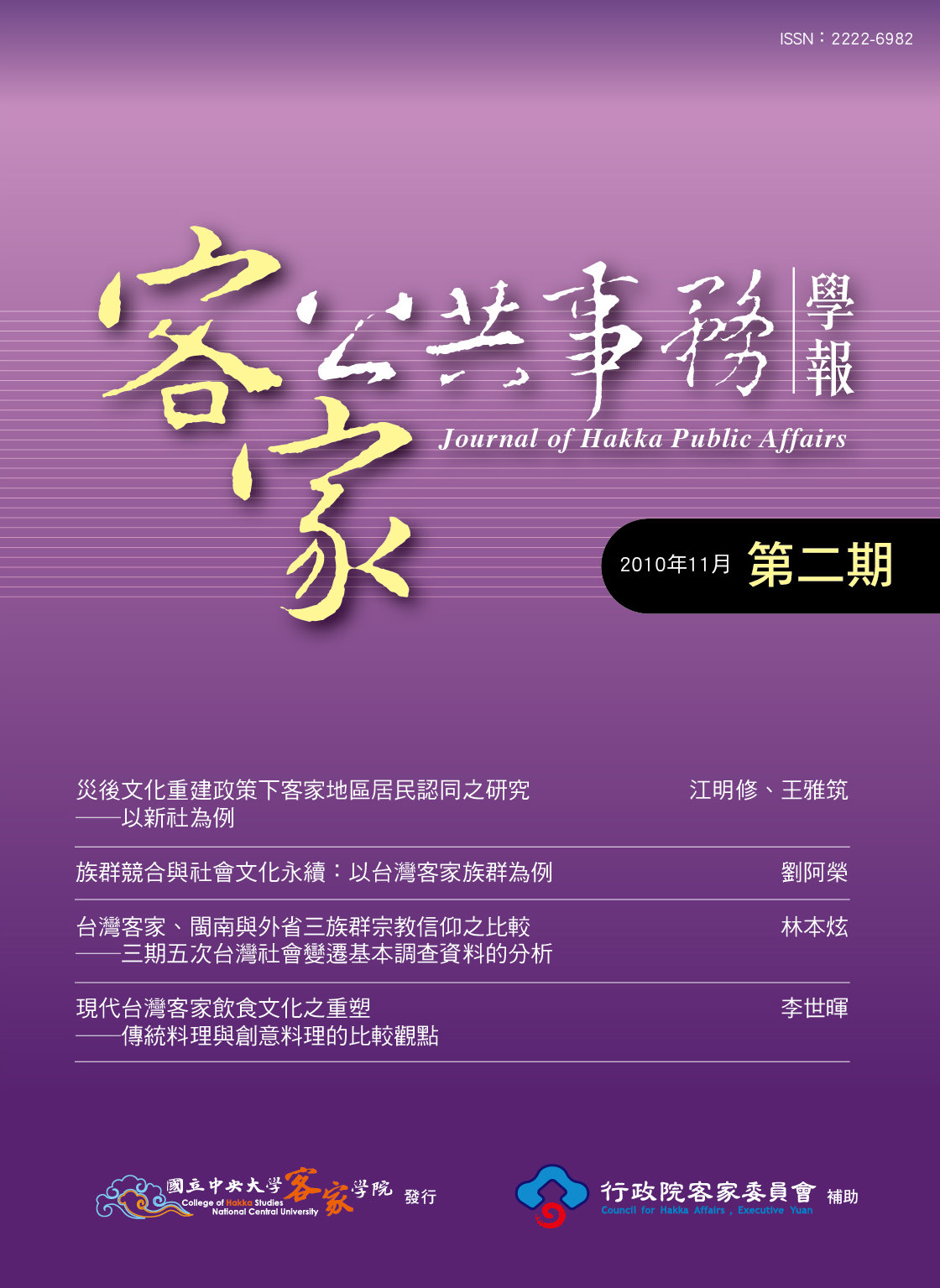Hot News
| 中文篇名 |
族群競合與社會文化永續:以台灣客家族群為例 | |
|---|---|---|
| 英文篇名 |
Ethnic Competition-Cooperation and Social Cultural Sustainability: An Illustration of Taiwan's Hakka Ethnic Group | |
| 中文摘要 |
由於歷史發展、地理環境、經濟資源、語言宗教乃至政治因素,使一國之內存在著多個族群,或是一個民族分散在不同國家間的「跨界民族」,這些民族間不論境內或境外,存在著既「競爭」又「合作」的關係,而當前多元社會文化並存,是各國的普遍現象。當國內族群關係和諧、國家認同有普遍共識時,則國家興盛、社會安定、民族文化得以永續發展。反之,則族群對立、社會動蕩、經濟蕭條,國家陷入危機。目前台灣地區主要的族群包括閩南(福佬)人、客家人、原住民、外省人(新住民)、新移民等五大族群,各族群在不同的歷史階段,經濟資源與政治機會,有若干「競合」現象。隨著台灣政治民主化的發展過程,處於語言、政經、人口弱勢的族群,如原住民、客家人,往往感受到本族群文化保存與社會永續的危機,因此政府的政策,必須考慮到少數族群的社會文化永續,體現各族共存共榮,並促進國家社會的和諧。 | |
| 英文摘要 |
Out of historical, geographical, economic, religious as well as political factors, nation is either comprised of various ethnic groups, or distributed across the boundaries of the states. While multicultural relations are the norm for the states worldwide, they are further characterized by competition and cooperation. When the relations among the ethnic groups are smooth and consensual on national identity, there is social stability on which national culture can be sustained; if otherwise, then there are ethnic conflicts that lead to social instability and even crisis. Currently Taiwan is comprised of five main ethnic groups, i.e. Holo, Hakka, Aborigines, Mainlanders, and New immigrants. Competing against and cooperating with one another for economic resources and political opportunities along the history. With Taiwan's political democratization proceeding, those situated on the margins of linguistic-cultural, economic-political and demographic structures like the Aborigines and the Hakka often bear the brunt of the crises in cultural preservation and social sustainability. Hence the policies ought to take care of the socio-cultural sustainable development of the minority groups, so as to enliven the ideal of ethnic co-existence and social harmony. | |
| 關鍵詞 |
多元文化、族群競爭與合作、永續社會、台灣客家族群、multiculturalism、ethnic competition and cooperation、sustainable society、Taiwanese Hakka group | |
| 刊名 | ||
| 期數 | ||
| 起訖頁 |
31-45 | |
| 出版單位 | ||
| 上一篇 | ||
| 下一篇 |



